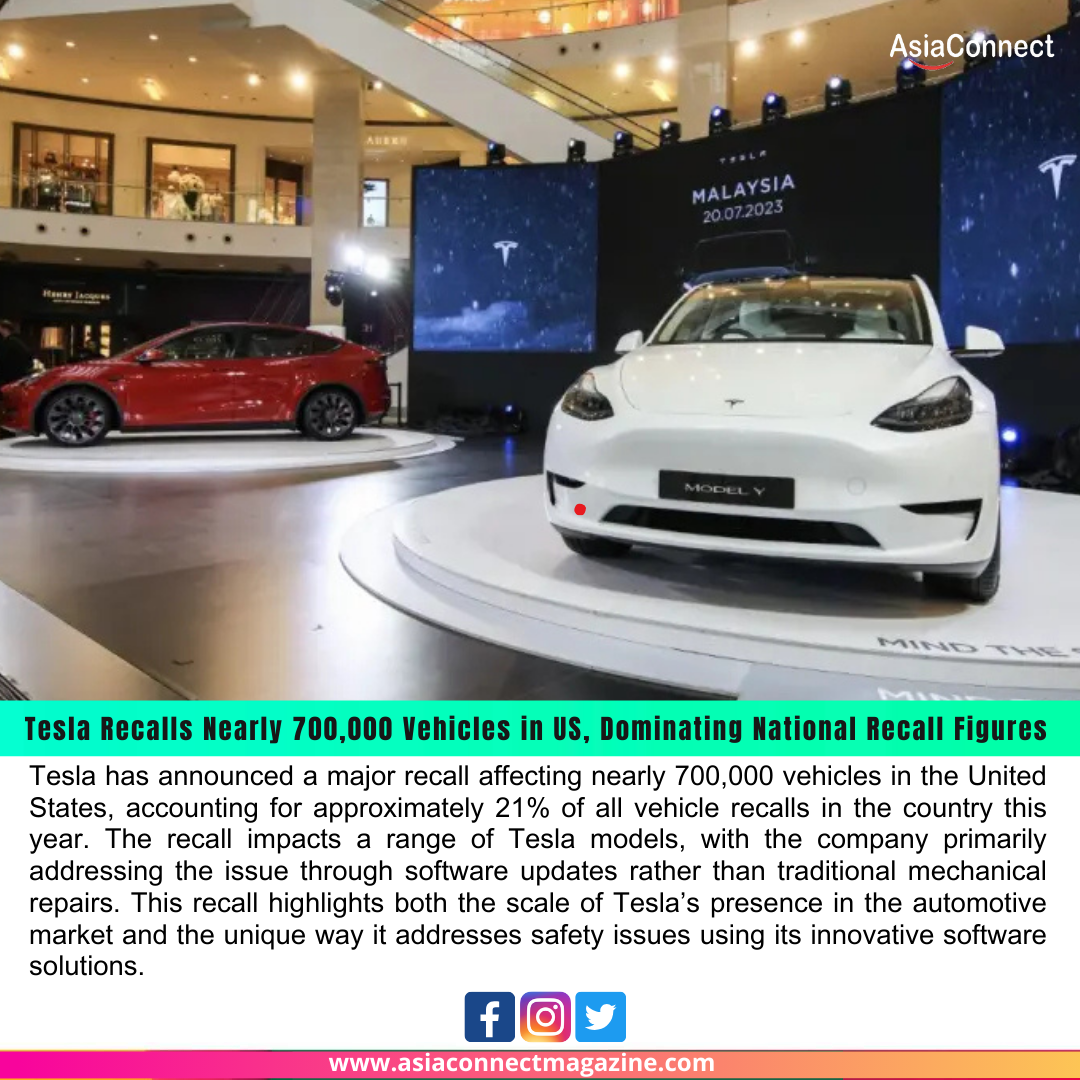Tesla has announced a major recall affecting nearly 700,000 vehicles in the United States, accounting for approximately 21% of all vehicle recalls in the country this year. The recall impacts a range of Tesla models, with the company primarily addressing the issue through software updates rather than traditional mechanical repairs. This recall highlights both the scale of Tesla’s presence in the automotive market and the unique way it addresses safety issues using its innovative software solutions.
The Scope of the Recall
Tesla’s recall involves models including the 2017-2023 Model 3, 2020-2023 Model Y, 2021-2023 Model S, and 2022-2023 Model X. The recall was initiated due to concerns with the vehicles’ “Booster” feature, which allows drivers to use a one-pedal driving mode, also known as “regenerative braking.” The issue at hand involves the car’s software not consistently alerting the driver when they exceed a speed limit, potentially affecting the driver’s ability to control the vehicle.
The National Highway Traffic Safety Administration (NHTSA) reports that the issue could potentially increase the risk of a crash, especially in instances where the driver may not be aware of the vehicle’s speed in specific driving conditions. As with other Tesla recalls, the company has acted swiftly, and in this case, it is addressing the problem via an over-the-air software update, meaning that affected vehicles will not require a trip to the repair shop.
The Role of Software in Tesla Recalls
Tesla has gained widespread attention for its ability to resolve issues remotely, and this recall serves as yet another example of how the company integrates technology into vehicle safety and maintenance. Unlike traditional automakers who often require physical repairs, Tesla’s software-driven approach allows them to roll out fixes directly to vehicles via software updates, minimizing disruptions to customers.
For Tesla, this ability to push out over-the-air updates is a significant advantage, as it can address safety and performance concerns rapidly and efficiently. The company has issued numerous software updates in the past to resolve a range of issues, from enhancing vehicle performance to fixing technical glitches, all without requiring physical interventions. This approach has helped Tesla maintain a reputation for quickly resolving problems and improving the overall customer experience.
The National Impact of Tesla Recalls
Tesla’s recall of nearly 700,000 vehicles is significant, particularly because it accounts for over 20% of the total vehicle recalls in the US this year. While the numbers may seem high, it’s important to consider the overall context. Tesla is one of the largest automakers in the US, and its relatively high recall rate is reflective of its large fleet and its aggressive efforts to maintain vehicle safety.
The company has already resolved many of the recall-related issues through software updates, which have made the process more efficient and less disruptive than traditional recalls. Despite this, Tesla’s involvement in a substantial number of recalls this year underscores the ongoing challenges that come with manufacturing cutting-edge vehicles with complex software systems.
Conclusion: Tesla’s Approach to Vehicle Safety
Tesla’s recall of 700,000 vehicles, while significant, also highlights the company’s forward-thinking approach to vehicle maintenance and safety. Through its use of over-the-air updates, Tesla has set a new standard for how automakers can address safety issues in real-time, improving the overall efficiency of the recall process. As the company continues to innovate in both hardware and software, it is likely that Tesla will continue to lead the charge in transforming how vehicle safety and repairs are handled in the automotive industry.





